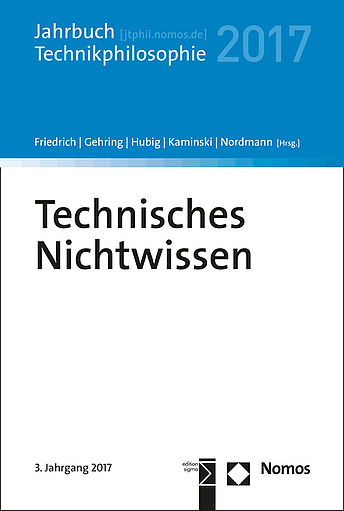englischIgnorance is a topical issue. People are widely discussing the existence of ignorant civilisations in the periods of second or reflexive modernity, agnotology as a new avenue of research, and wicked problems and their clumsy solutions. At the point where ignorance becomes inextricably lodged in the realm of what still needs to be learned due to an increase in complexity, ignorance challenges the so-called knowledge-based society as the obstacle to and flip side of knowledge. It is at this point that potential risks and dangers, which we know enough about to refute the claim that we are ignorant, reveal themselves. However, we will probably never be successful in convincingly refuting this claim.
Today, there is a tense relationship between the classical epistemological problem of what we can know and the question of what we must know, which governs our information society. On the one hand, we must know as much as necessary in matters of security and health, but on the other hand we should know as little as possible when it comes to relaying information to technological systems or expert cultures in daily life, economics or science.
If lacking knowledge of science or how to take appropriate political action constitutes a flaw, then an ignorance of technology is both desirable and problematic at the same time. Some of those who consider technology to be a field of applied knowledge will regard that statement as an oxymoron, some will worry it reflects an aversion to technology which results from a lack of technological knowledge, and others will see in it the humility necessary to combat extravagant delusions of omnipotence, while their antagonists dream of machines which continue to exceed the bounds of plausibility and intellectual comprehension.
Dieser Titel ist Teil der Reihe JAHRBUCH TECHNIKPHILOSOPHIE mit der ISSN 2297-2072 für die print-Ausgaben und der ISSN 2297-2080 für die eBooks.
Das Nichtwissen ist in aller Munde. Von Nichtwissenskulturen in der zweiten oder reflexiven Moderne ist die Rede, von Agnotologie als neuem Forschungszweig, von wicked problems und ihren clumsy solutions. Wo Nichtwissen sich durch Komplexitätssteigerung unwiderruflich im zu Wissenden einnistet, fordert es als Grenze, Schranke und Kehrseite des Wissens die sogenannte Wissensgesellschaft heraus. Vor allem Risikopotenziale und Gefahren kommen hier in den Blick, von denen wir gerade genug wissen, um Wissensansprüche zu formulieren, die sich womöglich nie einlösen lassen.
Das klassisch erkenntnistheoretische Problem: Was können wir wissen? steht heute in einem Spannungsverhältnis zu der wissenspolitischen Frage: Was müssen wir wissen? Was wir wissen müssen, ist einerseits so viel wie nötig, wenn es um Fragen von Sicherheit und Gesundheit geht andererseits aber so wenig wie möglich, wenn es in Alltag, Wirtschaft oder Wissenschaft darauf ankommt, Wissen an technische Systeme oder Expertenkulturen zu delegieren.
Bezeichnet politisch handlungsorientiertes und wissenschaftliches Nichtwissen zunächst ein Defizit, ist technisches Nichtwissen gleichermaßen erstrebenswert und problematisch. Einige, die Technik für angewandtes Wissen halten, mögen darin eine contradictio in adjecto sehen, manche sich um eine dem technischen Nichtwissen geschuldeten Technikfeindlichkeit sorgen, andere daraus die nötige Demut gegen verstiegene Allmachtsfantasien beziehen, während ihre Gegenspieler von Maschinen träumen, die über den Horizont intellektueller Nachvollziehbarkeit immer weiter hinauseilen.
Mit Beiträgen von:
Suzana Alpsancar, Lars Bullmann, Marcus Burkhardt, Eoin Carney, Pelle Ehn, Stefan Frisch, Gerhard Gamm, Petra Gehring, Till Greite, Hans Hasse, Andreas Kaminski, Gregor Kanitz, Matthias Koch, Christian Köhler, Johannes Lenhard, Alexandre Métraux, Alfred Nordmann, Tanja Paulitz, Tom Poljanek, Sandra Pravica, Katrin Solhdju, Werner Sombart, Florian Sprenger, Sebastian Vehlken und Rüdiger Zill.



